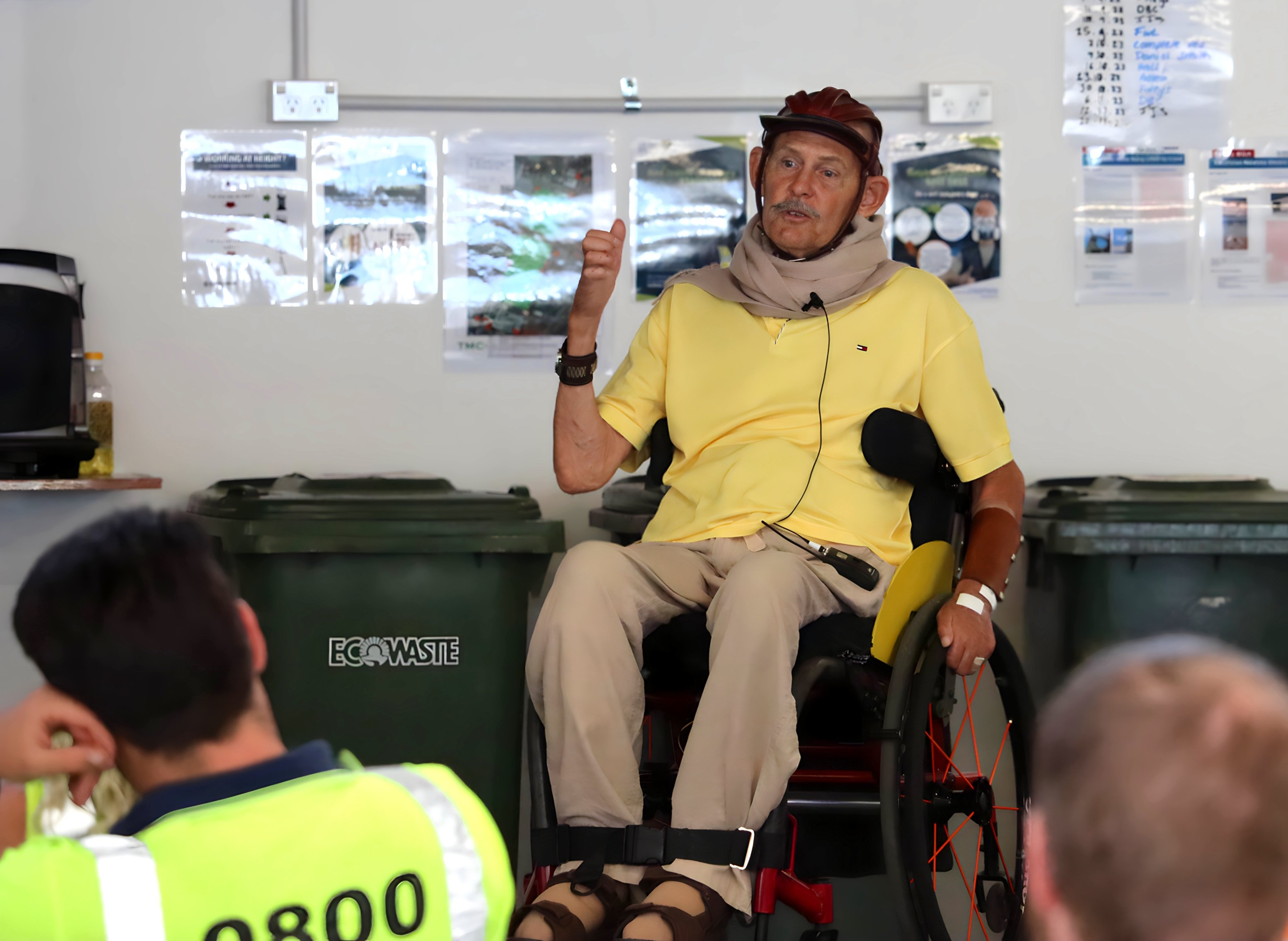
It was 20 years ago that the world changed in an instant for Rhett Brown.
While working on a construction site in Whangarei, he fell 2.2m from an unsafe, makeshift scaffold.
"I landed on the top of my head, and my feet were pointing straight up at the blue sky."
He recalled feeling embarrassed and wanting to get up before someone saw he had fallen.
"I felt a tingling sensation starting from my feet and wafting up my body, going right up to my nipples, and it also went through my arms, down the back of each arm, and into my hands.
"I tried to move my legs, my legs wouldn’t move.
"I tried to curl my toes, my toes wouldn’t curl, and then in that next second, I realised that I’d just broken my neck ... I just knew it."
As his boss ran over to him, Mr Brown was in tears, screaming, begging him to use a nail gun to shoot him.
"I just wanted to die, I wished I was dead, right there and then, that is how I felt."
After being airlifted by helicopter to Auckland hospital he underwent surgery and intensive care before being taken to a spinal unit to begin six months of recovery.
Although he began his recovery in a depressed state, often in tears and with suicidal impulses, gradually he began to learn about his condition and start to rebuild his life.
He slowly adapted to life with paralysis from the neck down, from mastering the use of an electric wheelchair to designing and supervising the construction of his own accessible home.
His personal experience was a vivid reminder of the importance of workplace safety.
He described the lack of safety measures at his work-site and a culture of negligence that ultimately led to his accident.
"Listen to your health and safety officers, listen to your foreman on site, listen to what their instructions are."
"All those regulations, all those rules, you may think are just bull.... or not needed.
"They are needed, they are made and given to you for one reason only, and that is to protect your backside at work."
The consequences of Mr Brown’s fall were not only physical, but also emotional and financial.
Beyond the loss of his ability to walk, Mr Brown faced the dissolution of his marriage and the financial burden of his care, underscored by the failure of his employers to meet their legal and moral obligations following his accident.
Today, however, he lives a fulfilling life, travelling and sharing his story to advocate for safer workplaces.
"I’ve never been happier," he said.
While his accident may have changed the course of his life, it has not defined it.
Mr Brown said his reason for sharing his experience was not about bitterness or anger.
"I’m just telling you the truth about what happened, so that you will realise and try to please be safer at work."
Where to get help in NZ
Suicide/depression related
Healthline 0800 611 116
Lifeline Aotearoa 0800 543 354, or text 4357
Suicide Crisis Helpline: 0508 82 88 65 (0508 TAUTOKO)
Samaritans 0800 72 66 66
Alcohol Drug Helpline 0800 787 797
General mental health inquiries: 0800 44 33 66
The Depression Helpline 0800 111 757














